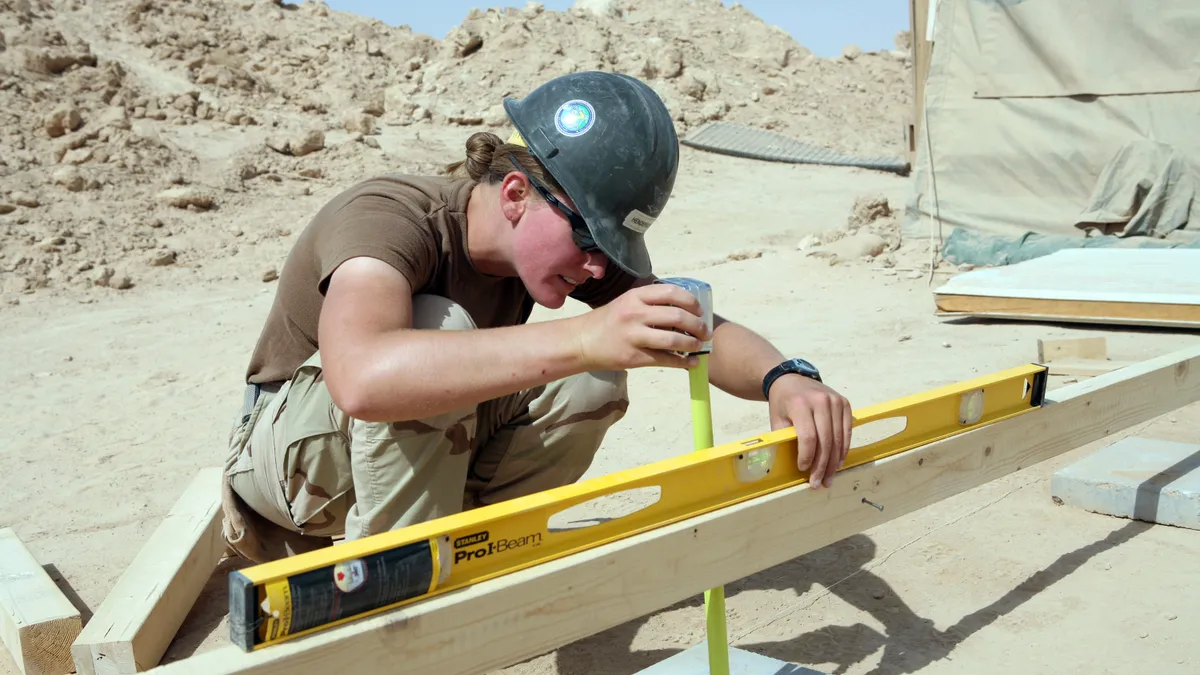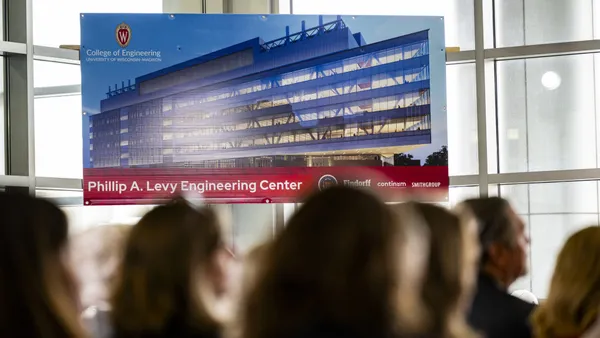Dive Brief:
- A Boston-area construction professional group has boosted women's employment in the Massachusetts building industry, according to The Boston Globe.
- The Policy Group on Tradeswomen’s Issues (PGTI), founded in 2008, is comprised of industry leaders and advocates who have seen women's participation in the state's construction industry rise to 5% of all construction hours worked and 6.3% of apprentice positions.
- PGTI said it works with companies, like Gilbane Building Cos. for instance, who are willing to expand their workforces to include women, forcing other companies to take a look at their own staffing policies.
Dive Insight:
Former President Jimmy Carter had set a four-year goal in 1978 for women to make up 6.9% of all construction hours worked in the country. Today, almost 40 years later, women make up about 2%-3% of construction hours worked. PGTI said its primary target is women of color who often haven't received the education or career support to access other high-paying jobs. According to the U.S. Bureau of Labor Statistics, Boston construction workers earn an average of $63,000 annually.
In an environment of low on-the-job mentorship interest and a dearth of women colleagues, PGTI said it provides the support that women in the trades need to achieve success in their careers, which, hopefully, will create a domino effect and lure more women into the trades.
Although women represent 47% of the workforce, they make up only 9% of the construction industry. At the Construction Management Association of America National Conference & Trade Show earlier this month, a panel of female transportation construction and engineering executives told an audience that diversity in the workforce makes a company stronger and encouraged experienced women construction professionals to be mentors to incoming talent.
With the continuing labor shortage in the industry, however, it may no longer be a choice for construction companies whether or not they take on more women employees. Two-thirds of contractors, according to the Associated General Contractors of America, are having a hard time finding qualified labor, so initiatives that bring in non-traditional workers might be the silver bullet. Attorney Carrie Rodgers, of Moye White in Denver, told Construction Dive last November that many women don't realize the amount of money they can make in the industry.













